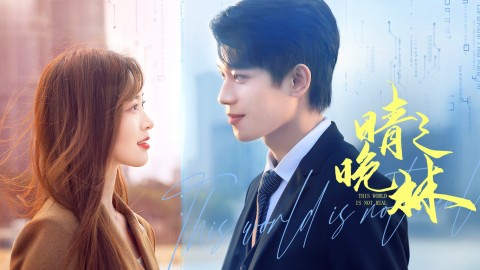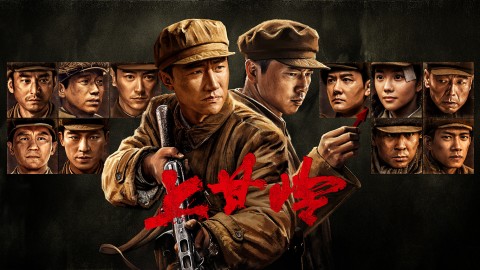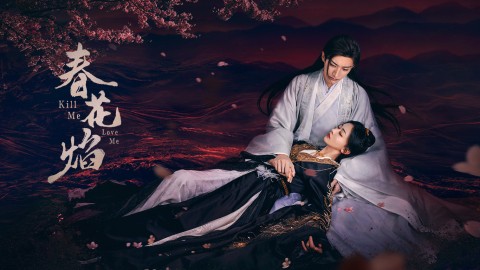Lightseeker: The Story of the Young Mao Zedong - A Captivating Historical Drama of Idealism and Revolution
As 2023 draws to a close, let's look back at the Chinese drama market of the year, which can be described as a "blossoming garden." There were crime investigation dramas like "Furious Speed" and "Who is He." Historical puppet dramas included "Lotus Tower" and "Longing." Suspenseful dramas such as "The Long Season" and "Beneath the Bustling City" also made their mark. There were also several notable historical revolutionary dramas aired this year, including "The Great Fire of the Road" and "Ask the Vastness," although they still have a long way to go to become breakout hits.
Focusing on the youth of a great leader, the highly anticipated "Lightseeker: The Story of the Young Mao Zedong" portrays the personal journey of Mao Ze Dong (played by Liu Cheng Lin) from his graduation from the Hunan First Normal School in 1918 to his participation in the First Congress of the Chinese Communist Party in 1921.
In just the first two episodes, several significant events in Mao Ze Dong's youth are depicted. Firstly, there is a protest march. In the spring of 1918, at the age of 24, Mao Ze Dong, upon the suggestion of his teacher Yang Chang Ji (played by Yu Yang), founded the New People's Study Society along with Cai He Sen, Xiao Zi Sheng, and others. However, Mao Ze Dong soon realized their ulterior motives and left. While passing through Xiangyin County, he witnessed a woman stopping a sedan and crying for justice. She explained that her daughter had been sold as a concubine to a person just because she accidentally broke a vase belonging to a local official. Mao Ze Dong's second significant act was seeking justice for Liu Laoshi. Upon returning from his studies, Mao Ze Dong discovered that since Zhang Jingyao took office in Hunan, he had been abusing his power for personal gain, causing great suffering to the people. Informed of this, Mao Ze Dong organized a protest march with the New People's Study Society, and it was only at the Governor's Office that he discovered that the abusive Zhang Jingyao was the same person he had encountered in the teahouse that day. From the episodes aired so far, it is evident that "Lightseeker: The Story of the Young Mao Zedong" focuses on the character development of the protagonist, depicting the gradual progression of Mao Ze Dong's personal confusion, bewilderment, and eventual ideological struggles, difficult choices, and maturation. Through his portrayal, the drama showcases the growth trajectory and spiritual world of the young generation pursuing ideals and exploring the path of the Chinese revolution a hundred years ago. With new talents taking on leading roles and seasoned actors providing support, unlike dramas of other genres, historical revolutionary dramas not only test the actors' performance skills but also challenge the director's casting choices. Even if some actors have excellent acting skills, they may not fit the role and fail to embody the character's essence. However, Liu Cheng Lin's performance in the main role of Mao Ze Dong is impressive, captivating the audience. In a classroom scene, he delivers an inspiring lecture to the students, bending down and looking at them with gentle eyes, radiating affability. When talking about his aspirations, his eyes shine with determination and idealism. In this moment, the audience can perceive the conflicting emotions of fear and fearlessness within Liu Cheng Lin's portrayal. Fear is instinctual, while fearlessness stems from a sense of mission deep within. Liu Cheng Lin has portrayed this duality flawlessly. The second notable performance comes from Dong Yong. From dramas like "Group Six of the Serious Cases" to "Black Hole," Dong Yong has left a deep impression on the audience with his portrayal of police characters. However, in the new drama, he transforms into a major antagonist. Playing the warlord Zhang Jingyao during his rule in Hunan, Dong Yong portrays a corrupt and ruthless figure. When faced with public outrage due to his actions, he calls in his henchmen, smiling on his face, and at a critical moment, his mouth curls into a threatening expression, uttering the phrase, "Bullets have no eyes." Dong Yong's portrayal of a corrupt warlord strikes the perfect balance, showcasing his exceptional acting skills even when playing a villain. The third notable performance is by Wang Zhi Fei. As a national first-class actor, Wang Zhi Fei's acting skills are beyond doubt. In "Lightseeker: The Story of the Young Mao Zedong," he plays Cai Yuanpei. During a scene where he welcomes his friend, he gracefully pours wine for him at the dinner table, exuding an air of elegance with every gesture. When engaging in casual conversation, he leans closer to the other person, instantly creating a relatable atmosphere. Wang Zhi Fei's portrayal of Cai Yuanpei embodies the wisdom and charisma of the renowned educator and intellectual.
"Lightseeker: The Story of the Young Mao Zedong" not only showcases the personal growth and struggles of Mao Ze Dong but also provides historical context and explores the societal issues of the time. The drama delves into the injustices faced by the common people, the abuse of power by warlords, and the intellectual awakening of the youth during the early 20th century in China. It presents a vivid picture of the social and political landscape that shaped Mao Ze Dong's ideology and his eventual role as a revolutionary leader.
The production values of the drama are commendable, with attention to historical details and authentic sets that transport the audience to the early 20th century. The cinematography captures the beauty of the landscapes and the emotional depth of the characters, enhancing the storytelling experience.
"Lightseeker: The Story of the Young Mao Zedong" has garnered significant attention and anticipation due to its subject matter and the performances of the talented cast. The drama aims to shed light on the formative years of one of the most influential figures in modern Chinese history, offering insights into the personal and ideological development of Mao Ze Dong.
As the drama continues to unfold, viewers eagerly anticipate the portrayal of Mao Ze Dong's journey towards Marxism, his involvement in the Chinese Communist Party, and the subsequent events that shaped his leadership and the course of Chinese history.
"Lightseeker: The Story of the Young Mao Zedong" stands as a captivating historical drama that combines elements of personal growth, political turmoil, and revolutionary ideals. Through its compelling storytelling and strong performances, it aims to engage the audience and shed light on an important chapter in China's past.
Epilogue: In the past, there have been numerous panoramic film and television works depicting great leaders, but there has been a scarcity of TV dramas that focus on Chairman Mao's youth and tell the story of a great leader's youth. The emergence of "Lightseeker: The Story of the Young Mao Zedong" precisely fills this void.
However, it is particularly important to bring fresh perspectives and portray the development and growth of the great leader's revolutionary ideas. "Lightseeker: The Story of the Young Mao Zedong" chooses a very authentic angle, that is, the confusion of youth. In 1918, Mao Zedong was only a 25-year-old student who had just graduated from a normal school and arrived in Beijing. He also faced the issues of employment and survival. In his search for the path of saving the country and the people, he was filled with anger, confusion, and bewilderment towards reality.
Through these portrayals, the series shapes a more authentic, three-dimensional, and down-to-earth image of the young great leader, which can resonate with contemporary youth. Based on these aspects alone, "Lightseeker: The Story of the Young Mao Zedong" is worth watching.


